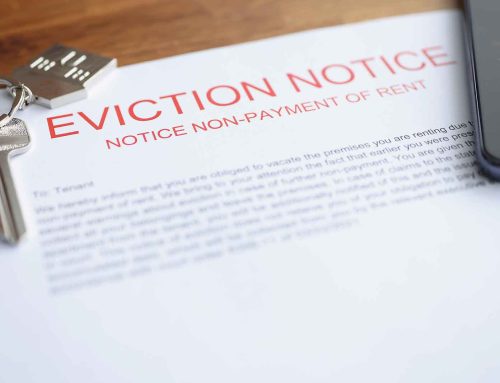If you are a Landlord and discover or believe that your Tenant has abandoned the premises, you have a few options under the Florida Statutes.
How to determine if a property has been abandoned.
Before a Landlord acts on the belief that a Tenant has vacated the property and has no intention of returning, the Landlord should determine if the property has been abandoned in a technical sense. In the absence of the Landlord having express knowledge of abandonment, Florida Statute 83.59 provides that abandonment can be presumed when the Tenant is absent from the premises for one-half of a rental period without previously notifying the Landlord of the absence, and the Tenant’s rental payments are not up to date. So, if a Tenant who owes rent every month has not paid rent in several months and has been off the property for 3 weeks, it can be presumed the Tenant abandoned the property.
Landlord can “stand pat”
If a Tenant has abandoned a premises, the Landlord can choose to stand pat and leave the premises “as-is”. If the Landlord chooses to do this, he or she can hold the Tenant liable for rent money as it comes due.
Landlord can take possession for him or herself
Perhaps the least complicated action the Landlord can perform is to assume possession of the premises for him or herself. If the Landlord does this, the Tenant will have no further obligation towards the premises.
Landlord can take possession of the premises “on account” of the Tenant
The Landlord also has the option to take possession on account of the Tenant, and re-lease the premises to another tenant. If the Landlord can re-lease the premises to another tenant, the original Tenant will still be liable for the difference between the rental amount he or she owes and the new rental amount. If the Landlord exercises this option, the Landlord is required to use a good faith effort to re-lease the premises.
Landlord can charge liquidated damages if such damages were provided for in the rental agreement
Many residential leases in Florida include an addendum providing for liquidated damages against Tenant if Tenant terminates the Lease early. This is because Florida Statute 83.595 requires an addendum, to be signed at the time of entering into the Lease, for the Landlord to be able to charge the Tenant liquidated damages for an early termination of the Lease. A Tenant’s abandonment of the premises would qualify as an early termination of the Lease. The amount of liquidated damages may not exceed two months’ rent. The form and language of the liquidated damages addendum can be found in Florida Statute 83.595.
If you are a Landlord facing a possible abandonment situation by your Tenant, please contact Siegel & Siegel at 561-620-8200. Our firm has successfully handled a variety of Landlord-Tenant issues. We look forward to helping you.
DISCLAIMER: The information contained on this website, including this article, presents general information and is not and should not be used as legal advice. Before acting on any of the materials presented on this website, we advise you to seek legal counsel regarding your unique situation. Using this website does not create an attorney-client relationship between the user and Siegel and Siegel, P.A., or any of its lawyers.
When a Property Manager in Florida can handle an eviction without an attorney
Can a tenant be evicted without the involvement of an attorney? In Florida, the answer is yes. A property manager assigned by the property owner can perform an [...]
What should the Landlord do if the Tenant abandons the Premises?
If you are a Landlord and discover or believe that your Tenant has abandoned the premises, you have a few options under the Florida Statutes. How to determine [...]
Non-written (Oral) Leases in Florida
Perhaps you are a Landlord or Tenant and you’ve found yourself in a situation where you previously made an oral Lease agreement, but you don’t have a written [...]
What are some of the duties a Landlord and Tenant have towards each other ?
It is always easier when a Landlord and Tenant are on the same page and able to have a harmonious relationship. Unfortunately, that doesn’t always happen. However, the [...]
What are my options if my Landlord keeps my Security Deposit?
You gave your Landlord a security deposit before you moved in. You're ready to (or already did) move out. Now, your Landlord has informed you that he or [...]
How a Tenant can defend against an eviction
As discussed in a previous blog, a landlord in Florida must follow specific procedures if they wish to evict a Tenant. Fairly often, however, Landlords do not follow [...]















